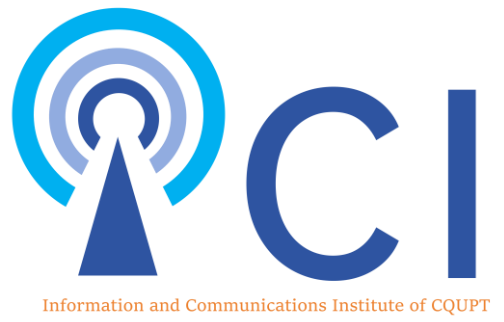Keynote 1
Date: TBD
Time: TBD
Topic: TBD
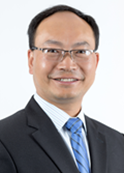 Weisong Shi
Weisong Shi
Editor-In-Chief of Elsevier Smart Health Journal
Short Bio: Weisong Shi (Fellow, IEEE) is a Professor and the Chair of the Department of Computer and Information Sciences, University of Delaware (UD), where he leads the Connected and Autonomous Research (CAR) Laboratory. He is an internationally renowned expert in edge computing, autonomous driving, and connected health. His pioneer paper titled “Edge Computing: Vision and Challenges” has been cited more than 5700 times. Before he joins UD, he was a Professor with Wayne State University from 2002 to 2022 and served in multiple administrative roles, including an Associate Dean for Research and Graduate Studies with the College of Engineering and an Interim Chair of the Computer Science Department. He also served as a National Science Foundation (NSF) Program Director from 2013 to 2015 and the Chair of two technical committees of the Institute of Electrical and Electronics Engineers (IEEE) Computer Society. He has published more than 270 articles in peer-reviewed journals and conferences and served in editorial roles for more than ten academic journals and publications, including EIC of Smart Health, AEIC of IEEE Internet Computing Magazine. He is a Distinguished Member of ACM. He is the Founding Steering Committee Chair of several conferences, including ACM/IEEE Symposium on Edge Computing (SEC), IEEE/ACM International Conference on Connected Health (CHASE), and IEEE International Conference on Mobility (MOST).
Keynote 2
Date: December 16, 2023
Time: 9:00am-9:50am
Topic: Federated Learning for Wearable Healthcare Devices
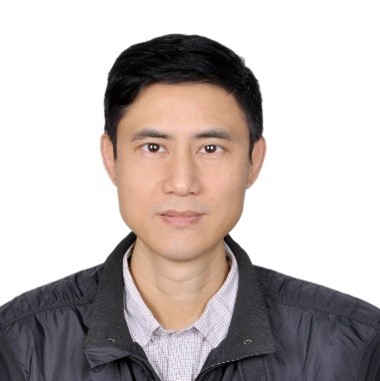 Dapeng Wu
Dapeng Wu
Editor-in-Chief of IEEE TNSE, Associate Editor for IEEE TCSVT, IEEE TWC, and IEEE TVT
Short Bio:
Dapeng Oliver Wu received Ph.D. in Electrical and Computer Engineering from Carnegie Mellon University, Pittsburgh, PA, in 2003. Currently, he is Yeung Kin Man Chair Professor of Network Science, at the Department of Computer Science, City University of Hong Kong. His research interests are in the areas of artificial intelligence, communications, image processing, computer vision, signal processing, and biomedical engineering.
He received University of Florida Term Professorship Award in 2017, University of Florida Research Foundation Professorship Award in 2009, AFOSR Young Investigator Program (YIP) Award in 2009, ONR Young Investigator Program (YIP) Award in 2008, NSF CAREER award in 2007, the IEEE Circuits and Systems for Video Technology (CSVT) Transactions Best Paper Award for Year 2001, the Best Paper Award in GLOBECOM 2011, and the Best Paper Award in QShine 2006. He has served as Editor-in-Chief of IEEE Transactions on Network Science and Engineering, and Associate Editor of IEEE Transactions on Communications, IEEE Transactions on Signal and Information Processing over Networks, and IEEE Signal Processing Magazine. He was the founding Editor-in-Chief of Journal of Advances in Multimedia between 2006 and 2008, and an Associate Editor for IEEE Transactions on Circuits and Systems for Video Technology, IEEE Transactions on Wireless Communications and IEEE Transactions on Vehicular Technology. He has served as Technical Program Committee (TPC) Chair for IEEE INFOCOM 2012. He was elected as a Distinguished Lecturer by IEEE Vehicular Technology Society in 2016. He is an IEEE Fellow.
Abstract: Federated learning enables multiple distributed devices to collaboratively learn a shared prediction model without centralizing their on-device data. Most of the current algorithms require comparable individual efforts for local training with the same structure and size of on-device models, which, however, impedes participation from resource-constrained devices such as wearable healthcare devices. To cope with heterogeneous devices, we propose a new federated learning framework with heterogeneous on-device models through Zero-shot Knowledge Transfer, called FedZKT. Specifically, FedZKT allows devices to independently determine their on-device models according to their own local resources. This talk presents the design of FedZKT, the effectiveness and robustness of FedZKT towards on-device knowledge agnostic, on-device model heterogeneity, and other challenging federated learning scenarios, such as heterogeneous on-device data and straggler effects.
Keynote 3
Date: TBD
Time: TBD
Topic: Wearable Computing for Healthcare and Motion Analysis
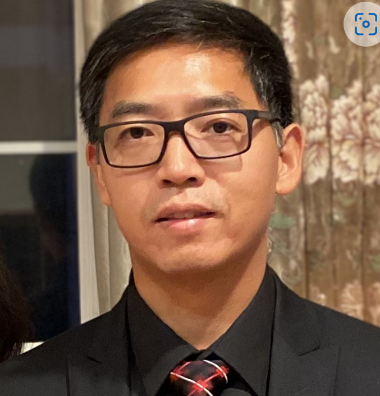 Gang Zhou
Gang Zhou
Editor-In-Chief of ACM Transactions on Computing for Healthcare
Short Bio: Dr. Gang Zhou is a professor of computer science at William & Mary, where he previously served as the Graduate Program Director from 2015 to 2017. He is an IEEE Fellow, a co-Editor-In-Chief of ACM Transactions on Computing for Healthcare, and a co-Area-Editor of IEEE Internet of Things Journal. He earned his Ph.D. degree from the University of Virginia in 2007. His research interests encompass a range of cutting-edge topics, including wearables & sensor systems, smart health, internet of things, wireless, ubiquitous & mobile computing. Dr. Zhou has served as a Steering Committee member (2018-present), General Chair (2019), and TPC Chair (2018 and 2023) of CHASE---ACM/IEEE’s premier conference on Connected Health: Applications, Systems and Engineering Technologies. He has also been recognized with several prestigious awards, including the NSF CAREER Award in 2013, the Best Paper Award from IEEE Internet Computing in 2020, and the Best Paper Award from IEEE ICNP in 2010.
Abstract: Healthcare is a fundamental human need that has been revolutionized by computing in the past century. Technology has transformed the way we approach healthcare from paper and pencil to individual computers, to connected devices via the internet, and now to wireless and mobile smartphones and wearables. In recent years, sensors have been integrated into these mobile and wearable devices, making healthcare a potential killer application for wearables. Additionally, non-contact sensing based on radio technologies is emerging as a promising new approach. As mobile and wearable computing can potentially dominate the healthcare landscape, I am excited to introduce three wearable computing platforms that my research group has been developing for Parkinson's Disease patients and other subjects for gait and motion analysis and real-time intervention. These platforms include IMU, magnet, and textile sensors. Using these sensors, we can provide personalized and targeted interventions to improve patient outcomes and well-being.
Keynote 4
Date: TBD
Time: TBD
Topic: Health Management of Large-Scale Medical Equipment: Sensor Data Fusion and Failure Prediction Based on IoMT
 Kang Li
Kang Li
Associate Editor of IEEE Transactions on Human-Machine Systems
Short Bio: Kang Li received the Ph.D. degree in Mechanical Engineering from University of Illinois at Urbana Champaign, Champaign, IL, USA, in 2009. He is now a full professor of the Biomedical Big Center at West China Hospital and Associate Dean for Research at Sichuan University Pittsburgh Institute (SCUPI). Before joining West China Hospital, He was an associate professor with the Department of Orthopaedics, Rutgers New Jersey Medical School (NJMS) and an assistant professor with Department of Industrial and Systems Engineering, Rutgers University. He was also a graduate faculty member of the Departments of Computer Science and Biomedical Engineering at Rutgers University. He serves as an associate editor of IEEE Transactions on Human-Machine Systems and BMC Musculoskeletal Disorders. His research interests include AI in healthcare, musculoskeletal biomechanics, medical imaging, design and biorobotics, and human factors/ergonomics.
Abstract: Large-scale medical equipment, which is extensively implemented in medical services, is of vital importance for diagnosis but vulnerable to various anomalies and failures. Most hospitals that conduct regular maintenance have been suffering from medical equipment-related incidents for years. Currently, the Internet of Medical Things (IoMT) has emerged as a crucial tool in monitoring the real-time status of the medical equipment. In this paper, we develop an IoMT system of Computed Tomography (CT) equipment and collected the system status time-series data. Novel multivariate time-series classification models and frameworks are proposed to predict the anomalies of CT equipment. The important features that are closely related to the equipment anomalies are identified with the model.
Keynote 5
Date: TBD
Time: TBD
Topic: Extending the Internet Protocols for Connected Healthcare Industries
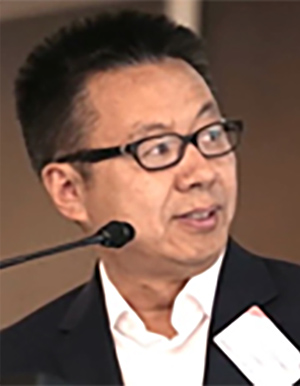 Richard Li
Richard Li
Chief Scientist of Futurewei Technologies Inc., USA
Short Bio: Dr. Richard Li is Chief Scientist and Senior Vice President of Network Technologies at Futurewei Technologies Inc. (Huawei R&D USA) in the San Francisco Bay Area. Richard served as the Chairman of the ITU-T FG Network 2030, a group to focus on network technologies in the year 2030 and beyond, from 2018 to 2020, and as the Vice Chairman of the Europe ETSI ISG NGP, an industrial specification group on next-generation protocols within European Telecommunications Standards Institute (ETSI), from 2016 to 2019. Prior to joining Huawei R&D USA in 2007, Richard worked with Cisco and Ericsson, being a major contributor to their networking products, technologies, solutions, and network operating systems deployed everywhere worldwide. He has also served as Chairs of steering committees and technical program committees of some academic and industrial conferences. Richard is extremely passionate about advancing ICT infrastructure technologies and solving problems in their entirety, thus creating a bigger and long-term impact on the networking industry. During his career, Richard spearheaded network technology innovation and development in Routing and MPLS, Mobile Backhaul Networks, Metro and Core Networks, Data Center, Cloud and Virtualization. Currently he leads a team of scientists and engineers to develop technologies for next-generation network architectures, protocols, algorithms, and systems in the support of emerging and forward-looking applications and industry verticals.
Abstract: Connected Healthcare Industries concern medical devices, medical applications and services, medical workers, and networks which connect all of them. The increasing medical demand for life-critical applications and services has brought the current Internet to the limits of what it can support, and new services are taking the current networks to their breaking point. Emerging applications are exploding in complexity and yield to massive tradeoffs between throughput, latency, packet loss and retransmission, which in turn restricts the advancement and deployment of emerging applications and services over the Internet. This talk analyzes challenges of emerging healthcare applications, identifies technical gaps between the medical demand and current networking capabilities, lays out new internetworking principles, outlines a new approach to digital packetization and packet transmission, in particular discusses high-precision communications, resilient communications, and qualitative and semantic communications. It will be shown that all challenges can be addressed in a new and uniform network packet protocol that promises to unleash innovations to power the next wave of future networking applications.




